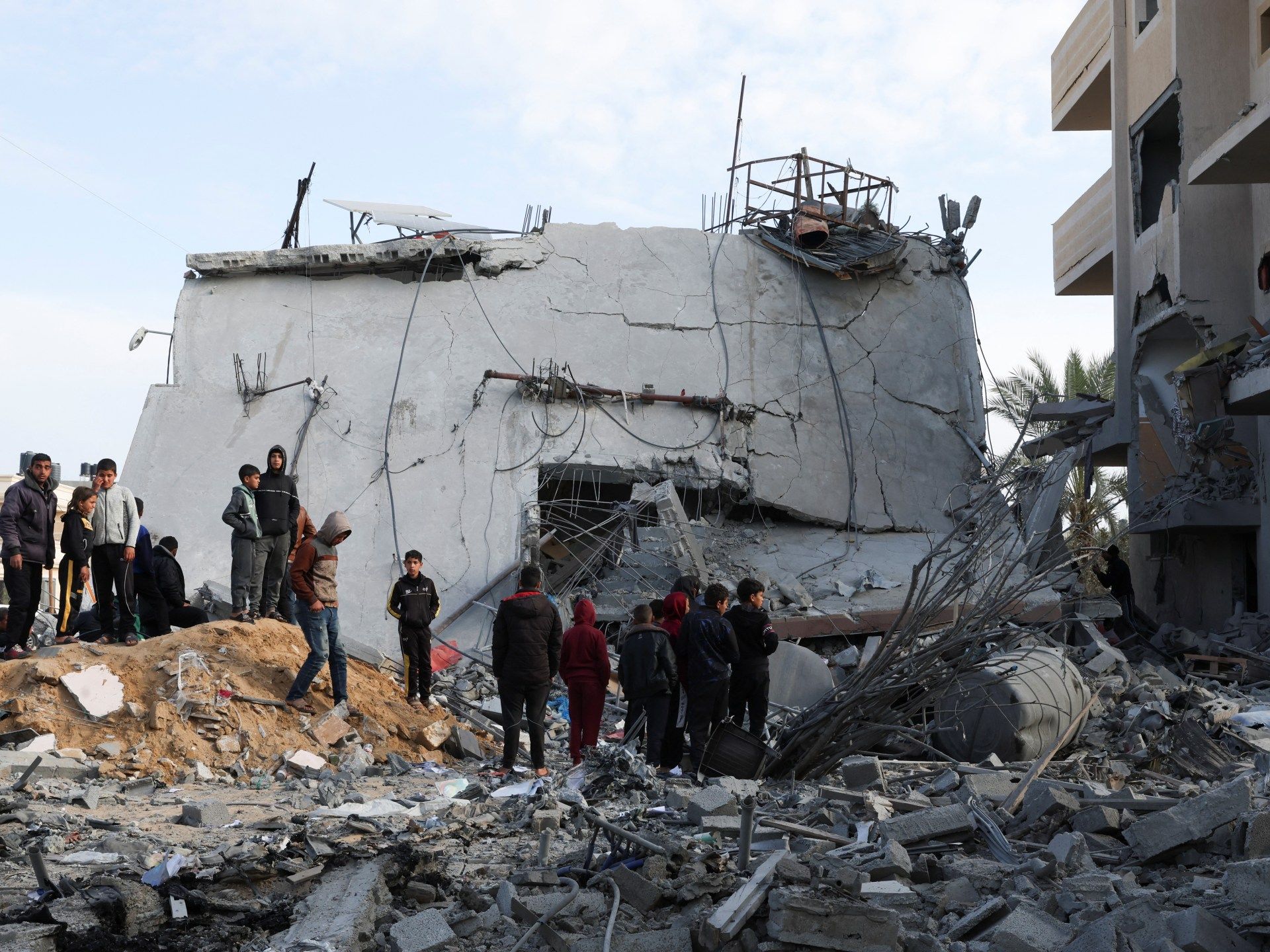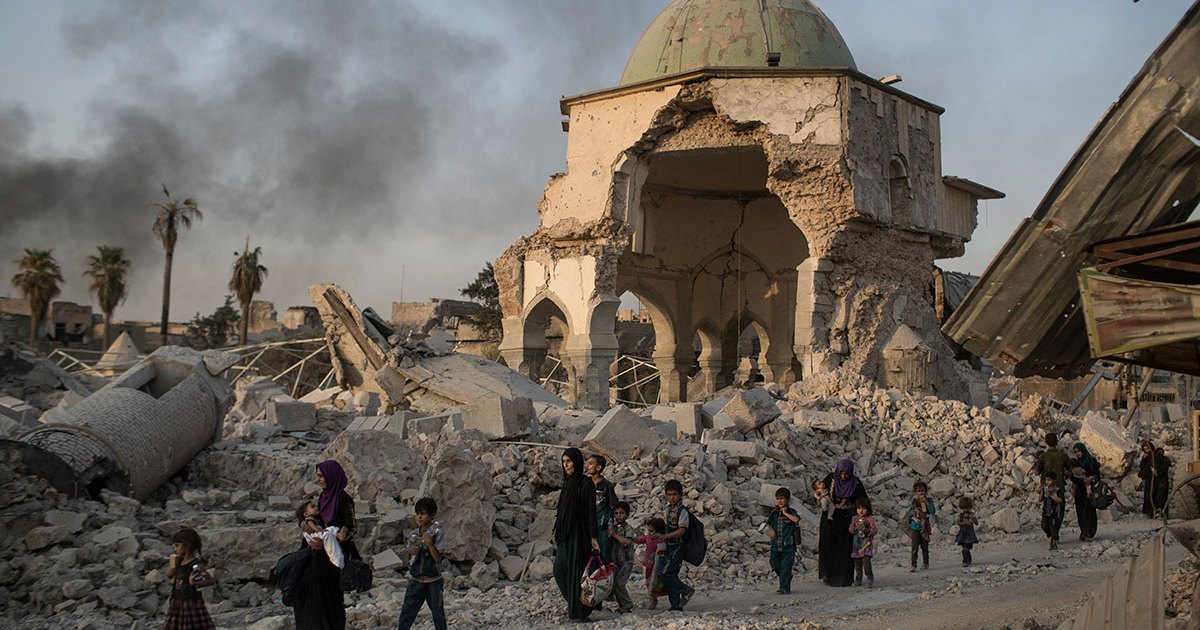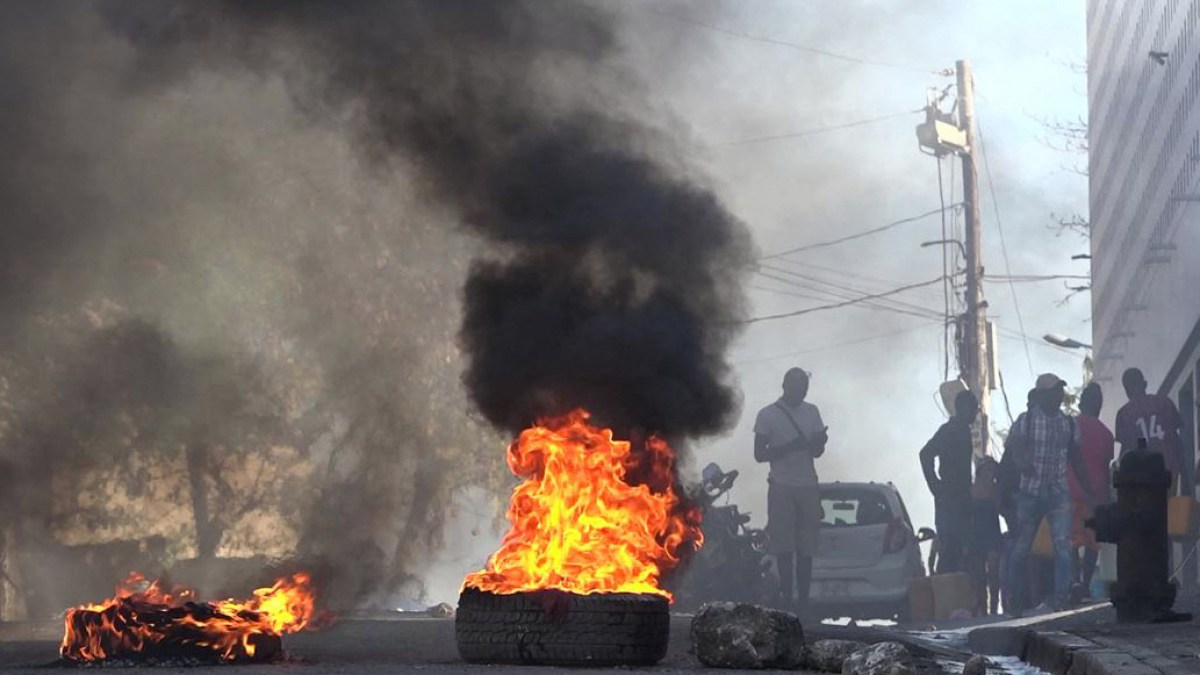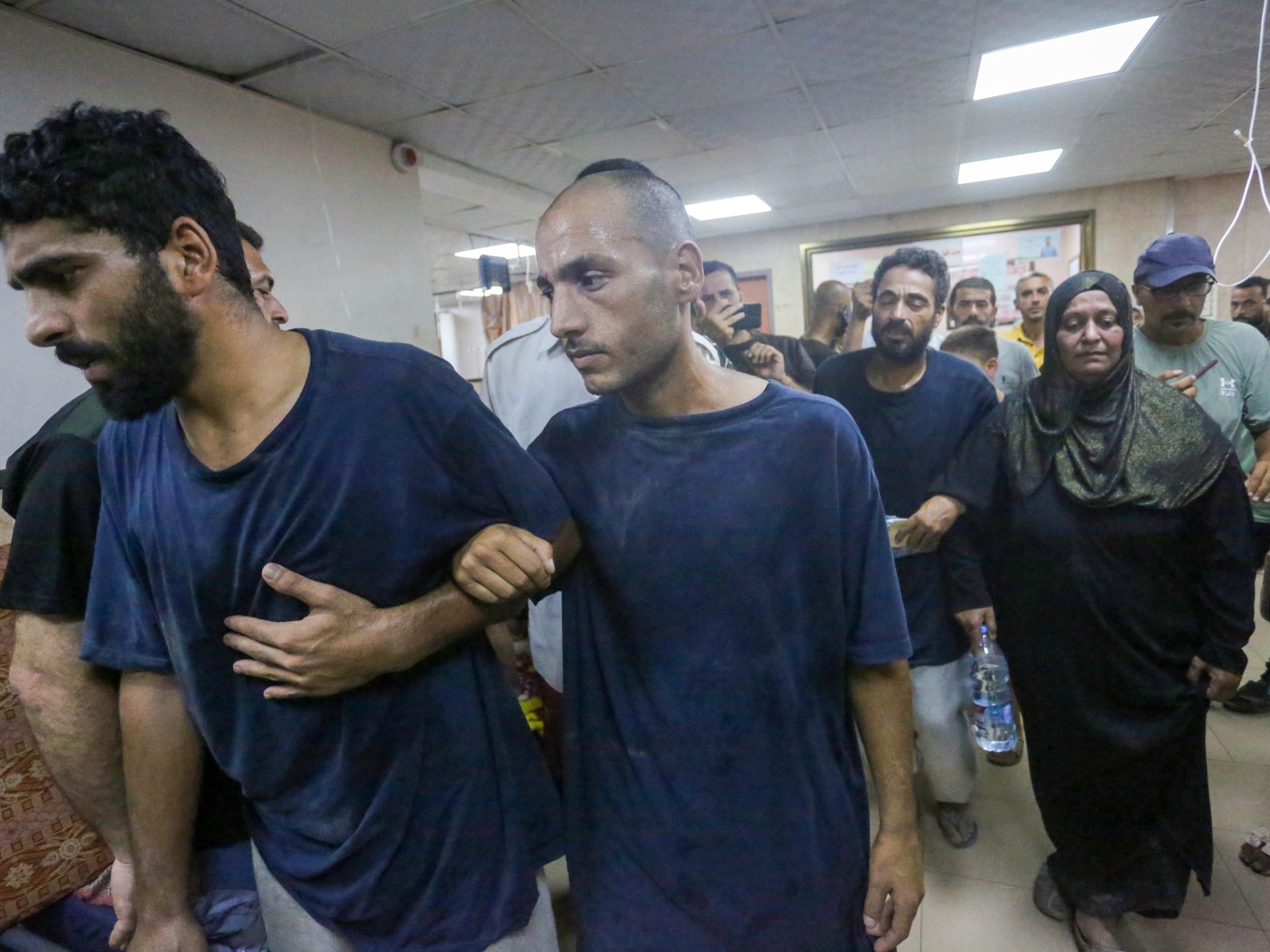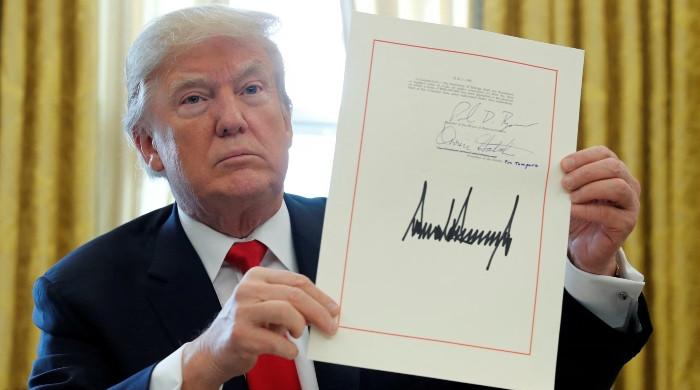Hamas chief Ismail Haniyeh blamed Israel for the lack of progress in reaching a ceasefire agreement in Gaza, the group said in a statement.
Haniyeh said Saturday that the Palestinian group would not accept anything less than a complete cessation of hostilities, the Israeli withdrawal from Gaza and the “lifting of the unjust siege.”
“So far it is clear that the occupation [Israel] “continues to maneuver and postpone things on files of interest to our people, while its position revolves around the release of prisoners held by the resistance,” Haniyeh said.
He added that Israel must also release Palestinian prisoners serving long sentences in any upcoming exchange deal.
In a speech later Saturday, Israeli Prime Minister Benjamin Netanyahu called Hamas' demands “illusory” and said a new deal to free the captives “does not seem very close.”
Meanwhile, Israeli forces carried out arrests at Nasser Hospital, Gaza's largest operating medical center, health and military officials said Saturday, as airstrikes hit the enclave.
“The occupation forces detained a large number of medical personnel inside the Nasser Medical Complex, whom [Israel] it became a military base,” said Gaza Health Ministry spokesman Ashraf al-Qudra.
Following Israel's raid on the Nasser Hospital in Khan Younis, which began on Thursday, at least five patients died after electricity was cut and oxygen supplies were cut, Gaza's Health Ministry announced on Friday.
The Israeli military said it was searching for fighters in Nasser and had so far arrested 100 suspects at the site, killed fighters near the hospital and found weapons inside.
Hamas has denied accusations that its fighters use medical facilities for cover. At least two freed Israeli hostages have said they were being held at Nasser, but Israel has not provided overwhelming evidence to support previous allegations that hospitals have been used as Hamas command centers, or that captives have been held in hospitals.
Israel's repeated attacks on hospitals have been described by human rights groups as “illegal”; Human Rights Watch has called for them to be “investigated as war crimes” and South Africa alleged before the International Court of Justice (ICJ) in The Hague that the attacks were evidence of “genocidal acts” committed by Israel.
The Israeli raid on the hospital has raised alarm about the patients, medical workers and displaced Palestinians taking refuge there.
About 10,000 people sought shelter at the hospital earlier this week, but many left in anticipation of the Israeli attack or because of Israeli orders to evacuate, Gaza's Health Ministry said.
Israeli airstrikes hit central Gaza
Across the Gaza Strip, at least 83 people have been killed in Israeli airstrikes since Friday, health officials said, including one person on Saturday in Rafah, an area bordering Egypt and which Israel now claims is the last stronghold of Hamas. .
The Palestinian Wafa news agency also reported Saturday that Israeli airstrikes killed at least 44 Palestinian civilians, including children, and injured dozens more when their residential homes were bombed in central Gaza, according to local and medical sources.
A series of airstrikes hit Deir el-Balah in central Gaza, an area to which displaced Palestinians are returning since Israel stepped up attacks on the southern city of Rafah.
The raids hit the east of the city, an area that has been subject to intense shelling over the past week, as well as the south. Ambulances rushed to the scene to take the injured to the hospital.
“That was crazy,” said Hany Allouh, 39, a father of two young children. “The rockets flew over us and caused a huge explosion. “They exploded one after another, causing panic among people in the streets.”
The Israeli military said its planes had killed numerous fighters in Gaza since Friday.
Across the border, air raid sirens sounded on Saturday warning of the arrival of rockets in the southern Israeli city of Ashkelon.
'Catastrophic consequences
Facing widespread international condemnation, Israel has insisted it will soon launch a ground invasion of Rafah. It is where an estimated 1.4 million of the enclave's 2.3 million residents have been forcibly displaced in Israeli attacks across Gaza during the four-month conflict.
Netanyahu reiterated in his speech on Saturday that Israel would press ahead with its planned attack even if a deal was reached to free the captives.
But six humanitarian and human rights organizations have warned of the “catastrophic” consequences of an Israeli ground offensive in Rafah.
The joint statement was signed by the heads of Oxfam, Amnesty International, ActionAid, War Child, the Danish Refugee Council and Handicap International.
“If Israel launches its proposed ground offensive, thousands more civilians will die and the current trickle of humanitarian aid risks stopping completely. If this military plan is not stopped immediately, the consequences will be catastrophic,” the statement states.
European Union foreign policy chief Josep Borrell also renewed calls for Israel to avoid military action in Rafah.
Such action “would worsen an already catastrophic humanitarian situation,” Borrell wrote in X.
On Friday, US President Joe Biden said he had repeatedly told Israeli Prime Minister Benjamin Netanyahu that “there has to be a temporary ceasefire” in Gaza during “extensive” talks this week.
Biden said he warned Netanyahu not to press ahead with a military operation in Rafah without a “credible and executable plan” to protect Palestinians sheltering there.
Reporting from Washington, D.C., Al Jazeera's Kimberly Halkett said it was “unclear” whether Netanyahu was listening to Biden.
“Historically it hasn't, especially when it comes to the United States warning about how to conduct the Israeli military campaign,” Halkett said.

